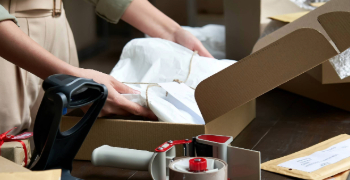Soda Tax Snafu – Wacky Tax Wednesday
Last July, Vermont slapped sales tax on soft drinks in hopes of raising approximately $7 million annually for the state. Since then, sellers have struggled to make sense of this law taxing “nonalcoholic beverages that contain natural or artificial sweeteners.” According to some retailers, compliance has been “a nightmare.”
You’d think it would be simple to discern which products are soft drinks (taxable) and which are not (exempt). And for many products, it is simple. Yet a trip down any soda aisle reveals an astonishing array of bottled beverages; to determine whether or not they’re taxable, labels must be read.
For example, tonic water, typically sweetened with corn syrup, is taxable. Seltzer water, which contains no sweetener, is not. Nonalcoholic beer or “near beer” is subject to the tax, as are sugary sports drinks like Gatorade. Less obviously taxable: Pedialyte.
I should confess that my children consider me to be a Soda Nazi (“No soda for you!”). Take it with a grain of salt. They also call me the Candy Nazi, TV Nazi, and all around Fun-Sucker.
Milking the exemption
No matter how sugary they are, beverages containing milk or milk products or soy, rice or similar milk substitutes are not considered “soft drinks” and are therefore exempt.
Although I would never call the Starbucks Bottled Frappuccino® a soft drink, its 32 grams of sugar per 9.5 ounce serving certainly meets my definition of a nonalcoholic beverage containing natural or artificial sweeteners. I would also judge the Frappuccino taxable because “Coffee or tea drinks that contain sweeteners” are listed as taxable on the Vermont Department of Taxes soda tax fact sheet. However, Frappuccinos contain milk and are therefore exempt.
I’m beginning to see what all the fuss is about—why one Vermont convenience store owner called this “the most confusing tax policy I have ever come across in all my years in business.” It’s also easy to see how many retailers could improperly apply sales tax to one man’s favored black cherry Schweppes. After all, other bubbly Schweppes drinks are taxable (VTDigger).
SNAP
Adding to the confusion is the fact that normally taxable soft drinks are exempt when purchased with food stamps or through Vermont’s Supplemental Nutrition Assistance Program (SNAP). The Soda Nazi in me wonders what kind of supplemental nutrition is contained in soft drinks….
For the confusion coup, normally taxable soft drinks are exempt from Vermont sales tax when purchased from a vending machine, as a bundled transaction (with a sandwich and chips), or at a restaurant as part of a taxable meal. In these cases, however, Vermont meals and room tax applies.
Mistakes are inevitable during these first months. Jim Harrison of the Vermont Retail & Grocers Association says, “The Legislature passed a definition that is hard to administer and understand. It is very confusing for the consumer and the retailer.” Fortunately, the Department of Taxes is working hard to help retailers and consumers understand the new law. Vermont also has the support of the Streamlined Sales Tax Governing Board, as Vermont is a member state and adheres to the organization's definition of "soft drink."
Tax Commissioner Mary Peterson acknowledges that larger chains with sophisticated point of sale and inventory systems probably have an easier time implementing the soft drink tax than mom-and-pop businesses. We would also add that automated sales tax Software-as-a-service (SaaS) would facilitate implementation.
In the meantime, says Harrison, “Please be patient with your retailers.”

Your competitors live by this annual report
Trusted by professionals, this valuable resource simplifies complex topics with clarity and insight.
Stay up to date
Sign up for our free newsletter and stay up to date with the latest tax news.











